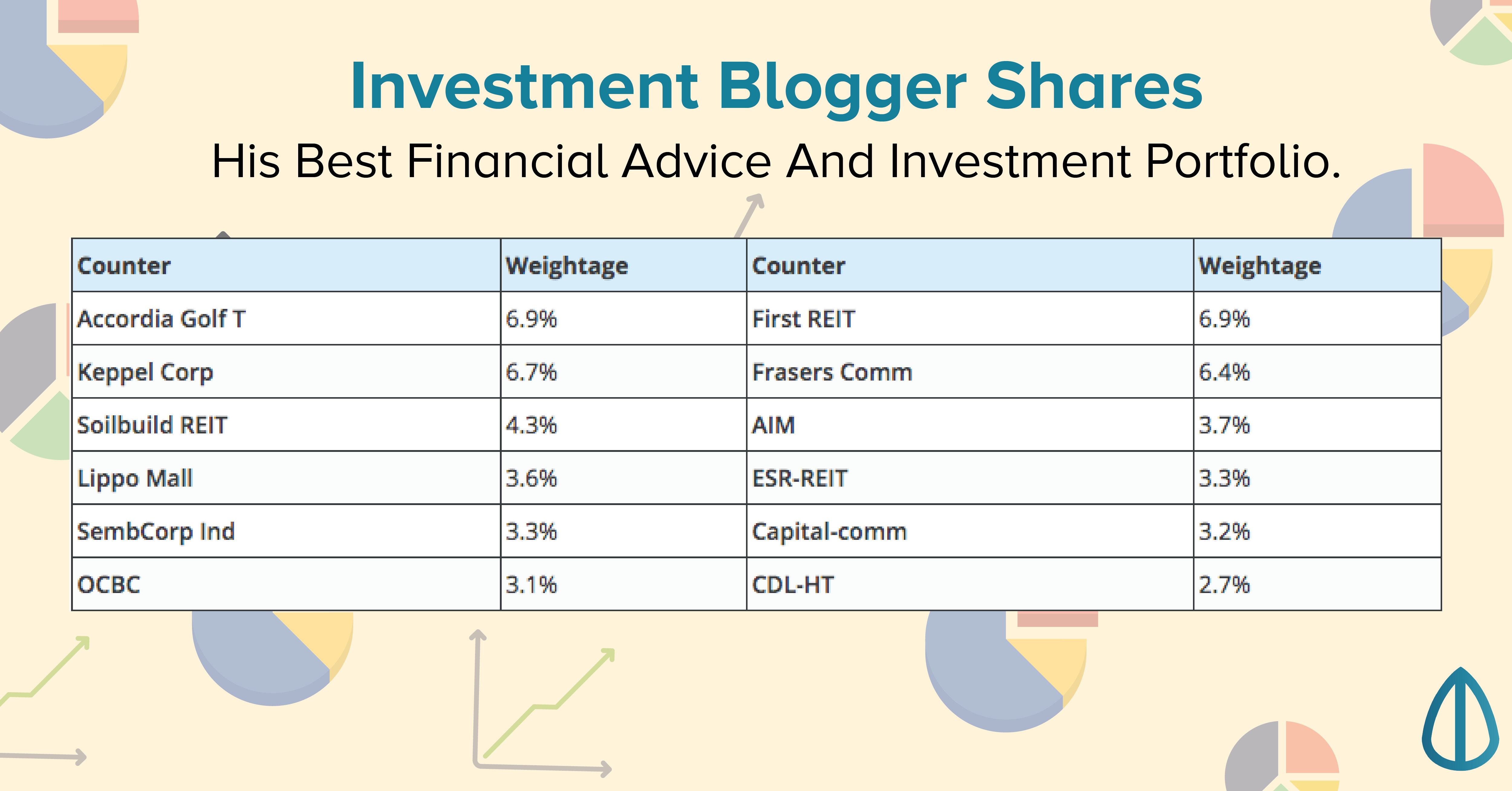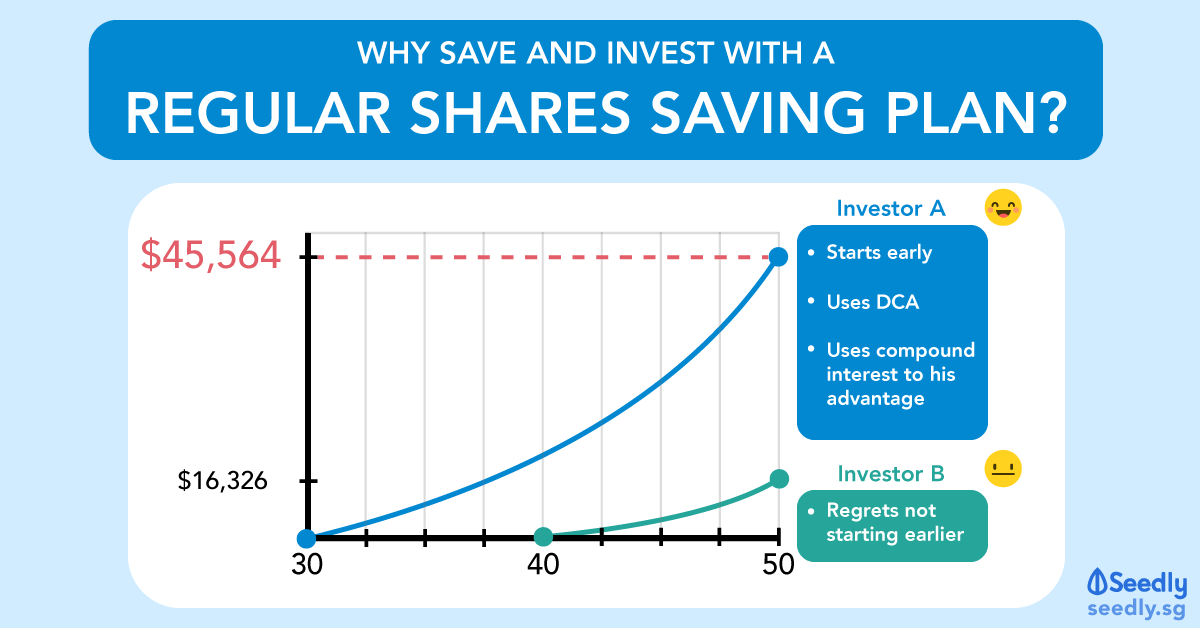Advertisement
Anonymous
I have been working on a plan to achieve financial independence but it hasn't been going too well. Anyone has any advice?
I’ve just hit my 1 year mark in the workforce, salary basic $3k. I also earn passive income each month by through tuition.
However, I’m still in school debt of about $28k, which I’m paying $500 a month towards.
I’m also supporting my fam ($500/month).
I invest only $100/month as I’m still trying to build my savings.
I feel discouraged when I look at my peers who has no debt at all. Any tips on what I can use as a benchmark?
13
Discussion (13)
Learn how to style your text
Reply
Save
Hi there anon!
I’m sure many undergrads & fresh grads are in a very similar position as they begin sorting their personal finance. Here’s my two cents worth of opinion!

TL;DR: Follow our Seedly Personal Finance Guide & Seedly Salary Allocation Model
Achieving financial independence begins with managing your personal finances well, which comprises of the following 5 verticals:
- Income
- Expenses/Spending
- Savings & Debt
- Insurance
- Investments.
I would touch on all of them in my sharing below but do refer alongside this Seedly Personal Finance Guide for more details :) For starters, I wanted to introduce you to Seedly’s income allocation model. I’ll be using $2,400 (your after-CPF salary) in the following example:
- 50% expenses: $1,200
- 30% invest: $720
- 20% savings: $480
1. Expenses/Spending: 50%
- Given that $500 goes to your parents every month, that leaves you with $700 for monthly expenses and insurance. I think it’s pretty alright if you have experience living on a budget from your university days but again, it’s dependent on your lifestyle.
- Regardless, if $700 is insufficient for you, part of your passive income from giving tuition can be channeled to your monthly expenses!
- As I’m unsure how much you earn from these monthly tuition sessions, I’ll still advice you to keep your expenses at bay.
- On top of your day to day expenses, you’ve got to factor in your monthly insurance expenses too. Despite your debt situation, I would still encourage you to get health and term insurance at least!
Additionally, if you’re thinking of getting a credit card, I would say pick those that will reward you with cashback! This makes your expenditure feel a little more worth it / hurt a little less. I personally wouldn’t focus on any travel plans until my student debt is cleared, therefore, I wouldn’t suggest getting a miles credit card. Here’s a Seedly article recommending the top cashback credit cards in 2019.
2. Investments: 30%
- I think $100 a month is fine right now as you still have debt to clear.
- After your student debt has been cleared and you’ve set aside emergency funds (at least 6 months worth of savings), I would recommend you invest a little more and hit that 30% target.
- In the meantime as you hustle your way to clear the debt and save your money, you can beef up your investing knowledge. Before embarking on your investing journey, you should do your due diligence at understanding the mechanics and risks associated with the various investment products.
- Come up with a financial plan too - what goals do you have, when would you like to accomplish them, what’s your starting capital, what’s your risk appetite? You may read more about investing in our Seedly guide on investing for Singaporeans!
3. Savings (& Debt): 20%
You didn’t mention anything about the amount you save every month at the moment besides the fact that you would like to grow it. That said, I’ve got 2 things I wanted to point out:
- I acknowledge that the $480 channelled to your savings based on our 20% guideline is clearly insufficient to cover your monthly student debt repayment ($500). Hence, tweak the percentages according to your unique needs. If you choose to stick with our recommended 20%, I believe some of your passive income from giving tuitions can help in this area.
- Picking the right savings account helps you in growing your savings too. Read this Seedly article on the best savings accounts with high interest rates that Singaporeans should get. I would personally recommend the DBS Multiplier Account paired with a DBS/POSB credit card.
With regards to your question on what should be your benchmark, I would say your peers are definitely not it. Your peers have different jobs, family backgrounds, lifestyles, and investment preferences - it’s impossible to find someone remotely similar to you and your financial position. Therefore, you shouldn’t compare yourself against them and their financial positions, it’s not a fair match. In short, there’s no need to feel discouraged because the comparison shouldn’t even take place. I think you’re doing great because you are:
- making some serious plans given your debt situation
- side hustling to further aid your financial position
- actively seeking advice from the community to improve your personal finance journey.
If you REALLY want a benchmark for the betterment of yourself, I would recommend the checklist in our Seedly Personal Finance Guide. Check everything on the guide while living comfortably based on our Seedly income allocation guide and I would say you’ve achieved financial independence :)
I hope this helped, all the best and keep up the good work!
Reply
Save
Vincent Tan Wen Bin
03 Jul 2019
Assistant Vice President at Thinkers Alliance
I can understand why you are worried. Comparing yourself to your friends who do not have any study loans is demoralizing.
Instead of spending the energy being envious of them, use this reason to spur yourself to work harder.
There are many success stories of people who started off with odds against them and they turn it around. Let this be the reason to spur you up instead of bringing you down.
I would recommend you to read the book "The Richest Man In Babylon". The methods in the book is simple and effective for you to build wealth. These are fundamentals that you can use to increase your wealth step by step.
In your situation, I would attack the debt aggressively. Have a goal to clear it within a deadline. Channel all your energy to clear the debt within your deadline and doing so can build up your resilence and create momentum for wealth building.
In the meanwhile, invest in yourself. Go to the library and borrow books on personal finance, investing, personal development and build up your skillset and confidence. I equate financial independence as success. And you do not chase success, you become someone who is capable of being successful and success will come to you.
This takes time and the only way to achieve that is to keep investing in yourself to grow.
I hope what I share can help to inspire you and I would love to hear how far you can get to in a year or 2.
Reply
Save
Eric Chia
03 Jul 2019
Senior Financial Consultant at Prudential
Your family and debt commitments are very high! They take about a third of your take home income (after considering CPF contribution).
3 key benchmarks based on your situation:
1) emergency fund and insurance is a must, especially since you are supporting your family. With your situation, I'd suggest setting not more than $100 a month on insurance, you may want to get a term plan covering 10 years with high protection plus medical and accident with it, then consider upgrading to whole life plan after that
2) investments - know your risk appetite and set your goal, how much you want to get in life. $100/ month is a good start if you're aggressive. You may want to tighten your spending further (sorry to say this because you've high commitments compared to the salary that you're drawing)
3) part time income - how much are you charging for tuition? Are you earning more dollars per hour compared to your full time job? Otherwise you may want to charge more for the tuition because you're spending extra time that you sacrifice outside of office working hours to get more money
Reply
Save
Looks like most of the answers are focusing on numbers and a game plan so ill try to answer this fro...
Read 6 other comments with a Seedly account
You will also enjoy exclusive benefits and get access to members only features.
Sign up or login with an email here
Write your thoughts
Related Articles
Related Posts
Related Posts
Advertisement










The most important thing before investing is to be completely free of debt.